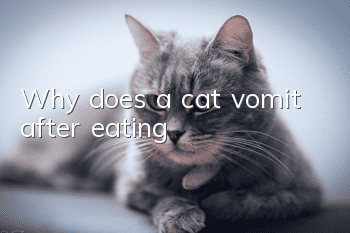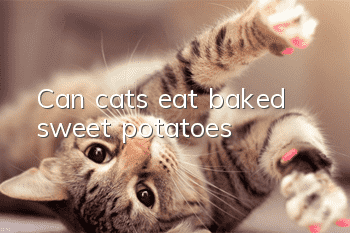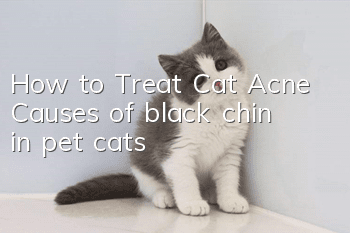Why does a cat vomit after eating?

A cat that vomits after eating may be caused by eating too fast, eating food that irritates the stomach, or hairball disease. It may also be caused by the cat suffering from gastroenteritis, infectious diseases, kidney failure, etc., and happens to be eating After something shows symptoms. It is recommended that the owner carefully observes the cat's condition. Once the cat is found to be accompanied by other abnormal symptoms, such as loss of appetite, listlessness, diarrhea, etc., it is recommended to seek medical treatment in time and use appropriate medication according to the cat's condition.
1. Eating too fast
Cats eat too quickly or too much, causing a large amount of food to accumulate in the stomach, which will cause physiological vomiting. In this case, what is vomited out is usually undigested cat food. For this, the owner can prepare a slow-feeding basin for the cat, control the speed and amount of food the cat eats, and follow the principle of eating less and more meals.
2. Eating food that irritates the stomach
If the food given to the cat is irritating or has gone bad, it will also cause the cat to vomit immediately, such as onions, ginger, garlic, Chili peppers, etc., which are also relatively common. In addition, if the cat's stomach is sensitive, food irritating the stomach may also cause the cat to vomit. In this case, it is recommended to feed the cat some less irritating food and add some probiotics to the daily food to regulate the gastrointestinal tract.
3. Suffering from gastroenteritis
If the cat vomits after eating, and what he spits out is not undigested food, but a puddle of yellow water accompanied by foam, It could be gastroenteritis. If there is no severe vomiting reaction due to gastroenteritis, you can feed the cat Suno and other anti-inflammatory drugs according to the weight of the cat twice a day. At the same time, it can be combined with probiotics for gastrointestinal conditioning. Generally, it will improve in 3-5 days.
If gastroenteritis has severe vomiting, accompanied by diarrhea, dehydration, etc., it is recommended to take the pet to a pet hospital for infusion treatment. In this case, if the drug is continued to be taken orally, it will not be absorbed, and the vomiting reaction will be aggravated by the drug stimulating.
4. Infection with infectious diseases
Cats vomit after eating. If the kitten has not been fully vaccinated, it may also be infected with feline distemper, feline coronavirus and other infectious diseases. The disease is just that clinical symptoms such as vomiting appear just after the cat eats. In response to this situation, it is recommended to take the cat to the pet hospital for further examination and treatment in time to avoid delaying the condition.
5. Kidney failure
If the cat reaches middle-aged and old age and vomits after eating, it may be caused by kidney failure. In this regard, owners should promptly pay attention to whether there are changes in the cat’s drinking and urination conditions. If the cat not onlyVomiting, polydipsia, polyuria, or oliguria and anuria may indicate renal failure. In this regard, it is recommended to send the cat to a pet hospital immediately for thorough examination and treatment, so as not to delay the best time for treatment.
6. Hairball Syndrome
When a cat licks its own hair frequently, causing a large amount of hair to accumulate in the intestines and stomach, hairball syndrome will occur, which may cause the cat to develop hairball syndrome at any time. Vomiting occurs. Owners can observe whether there are hairs in the cat's vomit. If there are, it is hair ball disease. At this time, you need to feed the cat hair removal cream or some cat grass in time to help the cat expel hair balls from the body.
- How to solve the problem of Ragdoll cats crawling and rummaging through things
- An introduction to the causes of hematuria in cats
- Do cats like drilling the bottom of presses need to be stopped?
- Does a cat need a fecal examination if it has soft stools? What causes it?
- Why do cats and dogs fight when they meet? The truth is finally revealed!
- What should I do if my female cat loses her appetite after giving birth?
- What should I pay attention to when my cat has hairy cheeks?
- Why does the kitten keep eating with its bulging belly?
- What should kittens eat if they don’t have teeth? Cat Feeding!
- Will a cat's personality change after being neutered?



